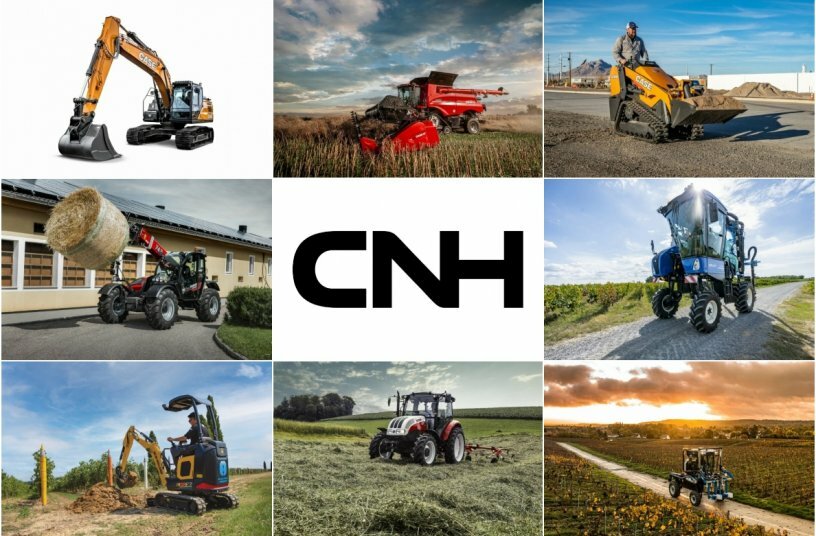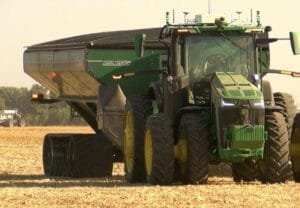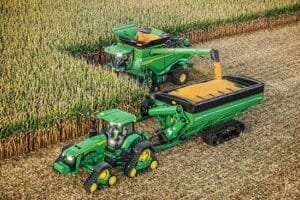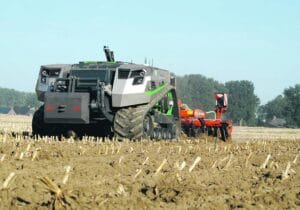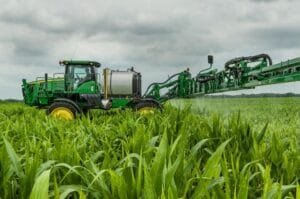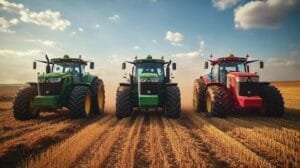Agricultural equipment manufacturer CNH Industrial has entered a strategic collaboration to develop autonomous tractors powered by artificial intelligence, marking a meaningful step in the evolution of precision farming.The partnership aims to integrate advanced AI systems into CNH’s agricultural machinery, enabling tractors to operate independently while optimizing field operations. This development comes as the agricultural sector increasingly embraces smart technology solutions to address labor shortages and improve operational efficiency in modern farming practices. Agricultural machinery giant CNH Industrial is forging strategic partnerships to accelerate the development of autonomous farming solutions through artificial intelligence integration. The company has joined forces with leading AI technology providers to enhance its self-driving tractor capabilities,marking a significant advancement in precision agriculture.
The collaboration focuses on implementing advanced machine learning algorithms and computer vision systems that enable tractors to navigate fields independently while performing complex farming operations. These AI-powered vehicles can analyze real-time data from multiple sensors, making instant decisions about optimal paths, obstacle avoidance, and operational parameters.Through these partnerships, CNH is developing tractors equipped with complex neural networks that can recognize field boundaries, identify crop rows, and detect various objects in their path. The system processes data from cameras, LiDAR sensors, and GPS technology to create a thorough understanding of the farming surroundings.
The autonomous tractors feature an innovative decision-making framework that adapts to changing field conditions and weather patterns. farmers can monitor and control multiple vehicles concurrently through a centralized dashboard, improving operational efficiency and reducing labor requirements.
Safety remains a primary focus of the development process, with multiple redundant systems ensuring reliable operation. The AI algorithms undergo extensive testing across diverse agricultural scenarios to validate their performance and safety protocols. Emergency stop mechanisms and remote override capabilities provide additional layers of security.
These self-driving tractors can operate continuously during optimal weather windows, maximizing productivity during critical farming periods. The AI system optimizes fuel consumption and reduces soil compaction by calculating the most efficient routes and maintaining consistent speeds.
Data collected during operations feeds back into the learning algorithms, continuously improving performance and adapting to specific farm requirements. The tractors can share information across a fleet,creating a collaborative network that enhances overall farming efficiency.
The partnership extends beyond hardware development, incorporating cloud-based solutions for data analysis and fleet management. farmers can access detailed operational insights and receive automated recommendations for improving field practices.
Integration with existing precision farming tools allows for seamless coordination of planting, spraying, and harvesting operations. The AI system can adjust implement settings based on soil conditions, crop requirements, and environmental factors.
Through these collaborations, CNH is establishing a comprehensive ecosystem that supports the transition to autonomous farming. The company is working with agricultural research institutions to validate the technology’s impact on crop yields and sustainability metrics.
The partnerships represent a significant investment in the future of farming, combining CNH’s agricultural expertise with cutting-edge AI capabilities. This technological advancement is positioned to transform conventional farming practices, offering improved efficiency, reduced environmental impact, and enhanced productivity for modern agriculture.

